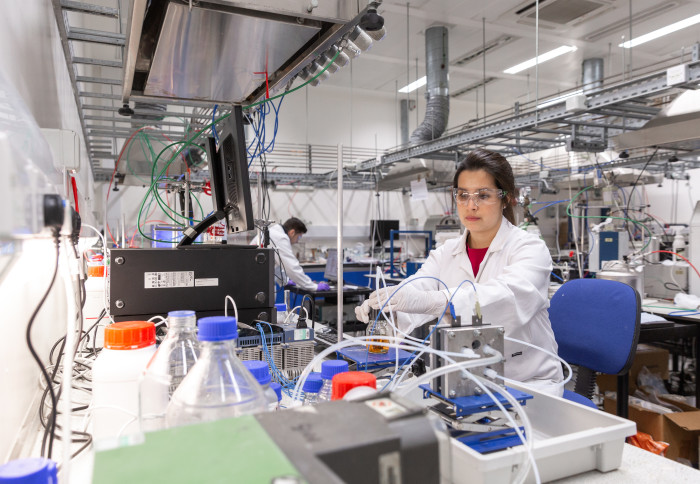Put women at the heart of a post-pandemic tech boom

Women shouldn’t be left out of the tech boom needed for post-pandemic recovery, argue Alice Gast and Alexsis de Raadt St James.
Writing in the Telegraph, Imperial’s President Alice Gast, together with Alexsis de Raadt St James, founder of Merian Ventures, a UK-US venture fund that invests in female-led technology, argue that supporting women in tech will be essential to Britain's recovery from the pandemic. They make the case for businesses, governments and universities doing more to drive change.
Science and technology has had a breakthrough year, they write. While other sectors continue to struggle, the technology and digital industries are thriving and will continue to be vital to the post-pandemic recovery – but these jobs and economic gains are largely benefiting men. They write: “Women have been disproportionately affected by the economic fallout of the pandemic. This is in part because they are underrepresented in industries that have continued to grow.”
Targeted, tailored support
The pair cite Imperial’s WE Innovate programme – an entrepreneurship programme specifically for women entrepreneurs – as an example of the targeted, tailored support needed. They argue: “We have pockets of success when we support women in science and tech – now we must scale that up. Businesses and government alike have a responsibility to take this forward and make the tech renaissance a benefit to all.”
WE Innovate has supported over 350 women to date, with businesses emerging including developers of eco-friendly fertilisers, finger-prick pre-natal testing for use in isolated parts of the world, and flushable, rapidly biodegrading menstrual pads.
Last year’s winner, Lu Ai has created an algae-based alternative to harmful microplastics often found in toiletries, paint and detergent.
“A lack of diversity stifles innovation”
We know women-led firms face specific barriers in accessing venture capital even though they are shown to perform better over time, they say. In the UK, female-founded firms receive just four percent of venture capital invested.
Alice Gast and Alexsis de Raadt St James write: “This is a grave problem, not just for women but for wider society. A lack of diversity stifles innovation, holds back progress and leads to poorer technology. As the world begins to recover from COVID-19, it is essential that we have the brightest minds from all backgrounds on the case.”
Article text (excluding photos or graphics) © Imperial College London.
Photos and graphics subject to third party copyright used with permission or © Imperial College London.
Reporter
Joanna Wilson
Communications Division